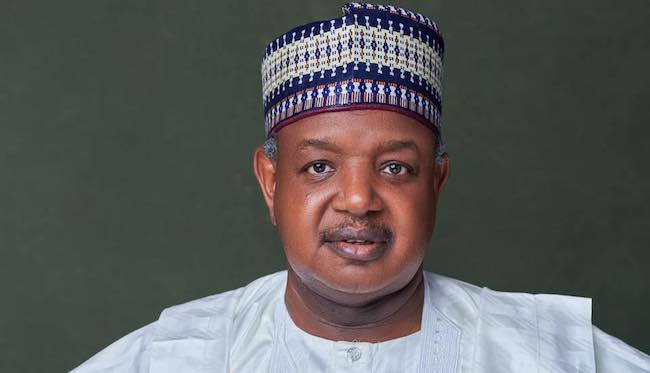By Asmau Ahmad
The Nigeria’s Federal Government said it targets to reduce poverty rate to 0.6 per cent and unemployment rate to 6.3 per cent by 2030 and 2050 agenda.
The Minister of Budget and Economic Planning, Senator Atiku Abubakar Bagudu, said this at a news briefing for the 29th Nigerian Economic Summit (#NES29) in Abuja.
The theme of the #NES29 scheduled for October 23 to October 24 at the Transcorp Hilton, Abuja is “Pathways to Sustainable Economic Transformation and Inclusion.”
Senator Bagudu said that the theme was chosen to discuss the imperatives for transforming the nation’s economy while ensuring inclusivity.
He said that the discussions around the theme would be on five sub-themes; namely, stimulating economic growth and mobilizing finance for sustainable development.
They also include harnessing human capital development, promoting national cohesion inclusion and reforming public institutions, among others.
Bagudu said that the sub-themes would address relevant pillars in the National Development Plan (NDP) 2021-2025, the Nigeria Agenda 2050 and the Renewed Hope Agenda.
“The main target of the Nigeria Agenda 2050 is to increase the country’s per capita GDP to 6,000 dollars and 33,000 dollars by 2030 and 2050 respectively.
“It will also bring the poverty rate to 0.6 per cent and unemployment rate to 6.3 per cent, while transiting the economy to the highest per capita GDP in the group of upper-middle income economies.
“The plan will be effectively implemented by successive governments through six number 5-Year Medium-Term National Development Plans and Annual Budgets,” he said.
The minister said that the renewed hope agenda and eight priority areas of the current administration were aimed at fast-tracking the goals of the Nigeria Agenda 2050
Also, the NDP 2021-2025 with a double-digit growth rate and inclusive development.
“The ministry is in the process of conducting the mid-term review of the NDP 2021-2025 with the purpose of fine-tuning the plan and ensuring that the renewed hope agenda of the current government is incorporated into the NDP 2021-2025.
“The Ministry will welcome innovative ideas from the stakeholders at the summit to ensure its effective integration into the NDP 2021-2025,” Bagudu said.
He said that the success of the summit would depend on the active and deliberate participation of all critical stakeholders.
The stakeholders, according to him include, the federal government, sub-national government, private sector operators, civil society organisations, the media and development partners,” Bagudu said.
The minister commended the contributions and commitments of the various corporate organisations and government institutions towards the successful hosting of the summit.
The Chairman of the Nigerian Economic Summit Group (NESG) Mr Olaniyi Yusuf, said their objective was to promote development in the country.
“In the face of a rapidly changing global economic landscape and increasing inequalities, a strategy for sustained growth must ensure a form of industrialization that makes opportunities accessible to all people and broadly distributes income and non-income gains across society.
“Our inability to fully integrate solutions to social issues into targeted industrial and economic policies undermines the developmental potential of our country, thus widening income inequality gaps.
“While there has been a broad decline in poverty worldwide, both extreme and moderate poverty remain and continue to increase in our country.
“Low productivity, inadequately diversified local economic activity, high unemployment rates and job insecurity remain a challenge for our country,” he said.
Yusuf said that the country’s pressing concern was the need to translate economic growth into improved living standards for all its citizens.




